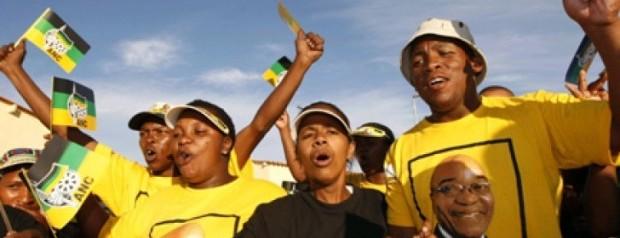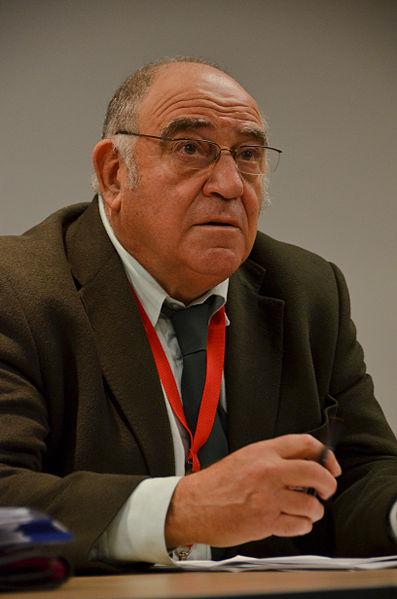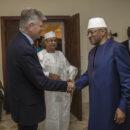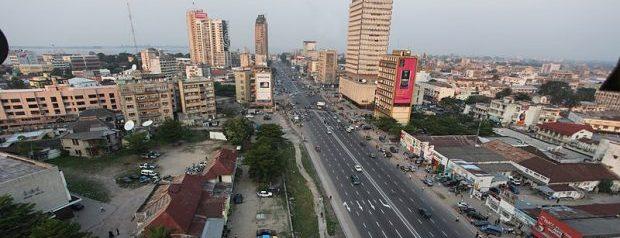Elections 2014: Why some South Africans are voting “˜No!’ – By Renee Horne

South Africans take to the polls tomorrow in the country’s fifth democratic elections since the end of apartheid. But, unlike 1994, the mood is far from celebratory – 20 years on many South Africans are stuck with a dilemma. Since 1994, the African National Congress (ANC) has been the party of choice for the majority of South Africans, but today even party stalwarts like former Minister of Intelligence, Ronnie Kasrils, have turned on the ruling party, “I will not vote for the ANC. I will definitely not vote for an ethnic party. I would not vote for a party that is a God party, such as the African Christian Democratic Party. I would not vote for a party that is for business.” Kasrils, along with former deputy Health Minister, Nozizwe Madlala-Routledge, recently launched the Sidikwe “˜Vote No Campaign’ which means “˜Wake Up, We are Fed up’.
In an interview, Kasrils tells me that “We were really concerned that so many people and social movements were saying they were going to abstain. We said “˜don’t abstain, you will be invisible. You must exercise your vote and your voice’. When we are in the polling booth, we say look at the list of parties, choose a party that you think can make a difference to signal to the ANC ruling party that we are dissatisfied with your record. We want you to wake up; therefore we are going to vote for another party.
Kasrils continues: “…this does not mean vote Democratic Alliance (DA), because the DA in economic terms stands for Big Business. [For example] It’s been virtually silent on the Marikana massacre. The ANC ruling party must take responsibility for this. The DA still carries the rump of the Old National Party”.
South Africa’s proportional representation system means every vote for a party is also a vote against another party. But Kasrils added that it would be a tactical move on the part of the voter to choose smaller parties. “Look for a party which can make a difference against corruption and deal with the economy. When we talk about the economy we are really talking about leftist parties, not electoral agents. If you do not find a party on the ballot paper that you have any confidence in then you have a democratic right to cancel that ballot paper, by voting NO across it…a spoilt ballot paper”.
The debate among South Africans dissatisfied with the electoral choices on offer is: Why take the time to go to the election polls, to spoil your ballot hence your voice will not be heard? Kasrils stated that spoilt ballots accounted for 260,000 in last general election, “If we can double that number this time it sends a signal to the ruling party that people are lacking confidence in what they are saying”.
If people should choose to vote for a smaller party, the question arises: Are South Africans intellectually savvy to research them? After all, we talking about a country where only 4 million of the estimated 53 million people have post high school qualifications and 7% cannot read and write. The ANC and DA’s advertising campaigns in both rural and urban areas are what catch the attention of most voters. Kasrils responds by saying that he thinks “people are far savvier about their vote than the newspapers and the elite give them credit for. If you look at the 2009 elections [there were] 230,000 spoilt ballot papers, if you look at the local elections thereafter, the figure was over 600,000 spoilt ballots. It has traction; it is part of a democratic culture to develop an understanding of smaller parties and the message of a spoilt ballot option.”
Kasril argues that “It is up to smaller parties to make an impact. It’s not that people should think this is a waste. I think the message counts, the Economic Freedom Fighters (EFF), who just entered the arena are proving it, because they are coming with an appeal very much to the young and very much to people who feel the ANC has betrayed the Freedom Charter by not focusing on the economy and nationalisation. I think that the EFF are bound to do very well. They certainly have traction.”
A big question mark, however, remains over EFF leader and firebrand, Julius Malema. The former ANC Youth League president was notorious for his opulent champagne lifestyle, expensive cars and watches. He was also charged with tax evasion and fraud; however Kasrils stated that perhaps we should have a little faith in Malema. “Julius Malema has been given a swollen head by Jacob Zuma on the public platform saying “˜this is your future president,’ [but] I don’t think we should be that frightened of him…Julius Malema is surrounded by some very bright people like Floyd Shivambu; he also has Dali Mpofu, an advocate who is the candidate for Gauteng Premier. They don’t come brighter than that.”
I am saying to the EFF, sort out the corruption that surrounds you from the past and why use terms like Commander-in-Chief, it is too militaristic. You have got to create a democratic culture and I hope that they take that on-board. This is not necessarily an endorsement of the EFF”.
Indications are that the Vote “˜No’ campaign has gained traction, but it is likely that major parties such as the ANC and DA will dominate at the polls. “We need parliament to be woken up and [support] good voices so the ANC does not drown [them out]… Voices that will really expose the corruption that is taking place from Nkandla and so many other things. I know the DA do that and do it quite well…but that is where they stop.”
Tomorrow, South Africans face a tough decision at the polls: Vote for the party that fought for the rights of the majority to vote, the ANC of the past. Or use the opportunity to vote “˜No’ for the ANC of today.
Dr Renee Horne is the lead academic and senior lecturer for Business in Africa at Wits Business School. She is an ad hoc lecturer of Political Economy at the University of Johannesburg and Board Member of the South African Supplier Diversity Council.







